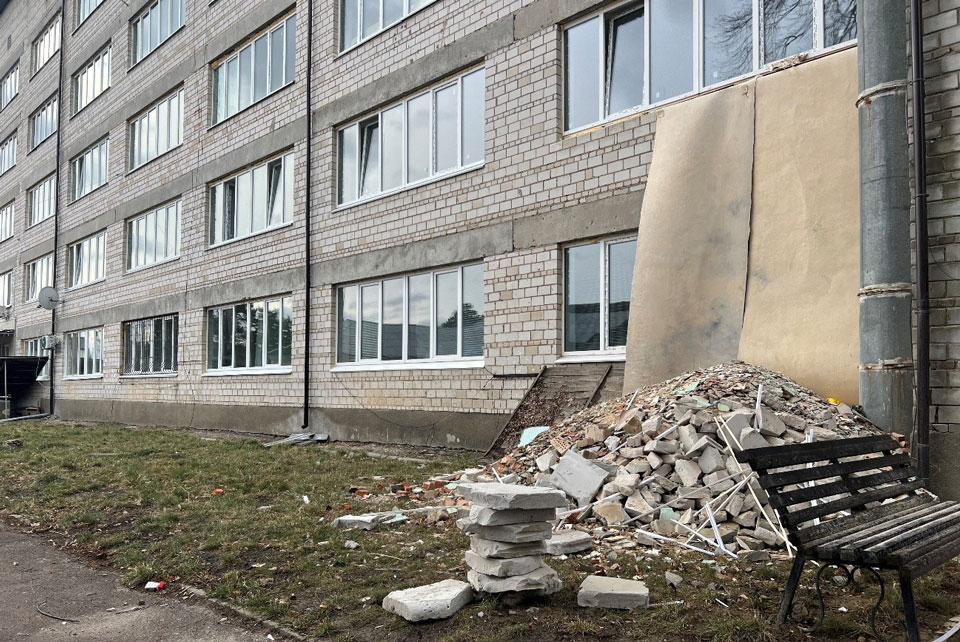
Evidence of attack
The Makariv Central District Hospital, about an hour's drive from downtown Kyiv, was heavily damaged by a Russian attack in the early stages of the war. The hospital has reopened but still bears scars of the attack. The walls are riddled with bullet holes, piles of rubble dot the grounds, and almost all the windows are brand new.
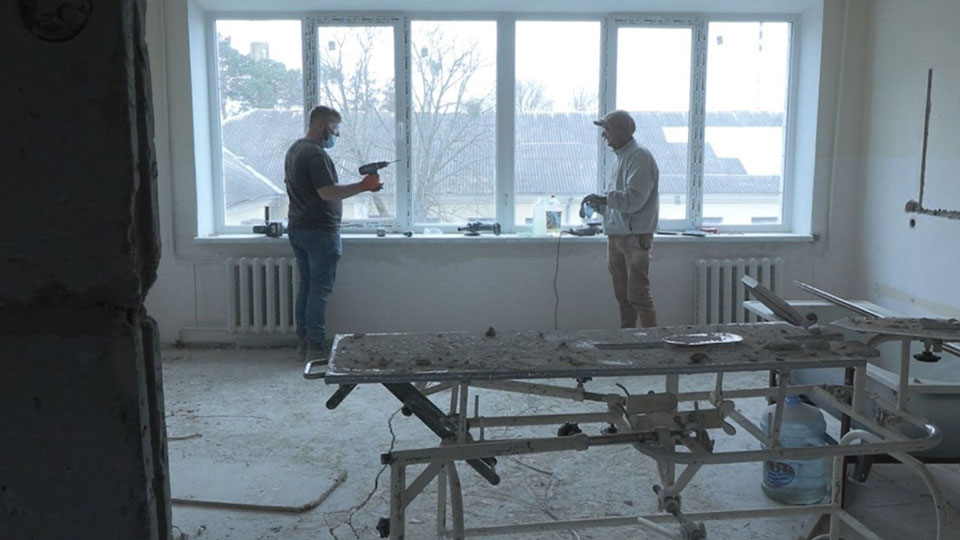
Dr. Anatolii Yovenko was there when the fighting began. He said the hospital had been spared from attack in the opening weeks of the war because the Russians "wanted to seize and use us for their purposes." But after their offensive stalled and they were forced to retreat, everything was fair game.
"When they arrived, they simply opened fire, they wanted to show who was in charge," Yovenko says. He adds that anything in the way of the retreating forces was a target for attack, and the hospital — a large, five-story building — was deemed to be in the way. "There was a targeted shelling."

When it became evident that the hospital was no longer safe, the staff sent patients home or to other facilities.
They started reopening little by little about a month later, but even now many areas remain closed. The number of beds has been cut in half, so the staff are regularly forced to turn patients away.
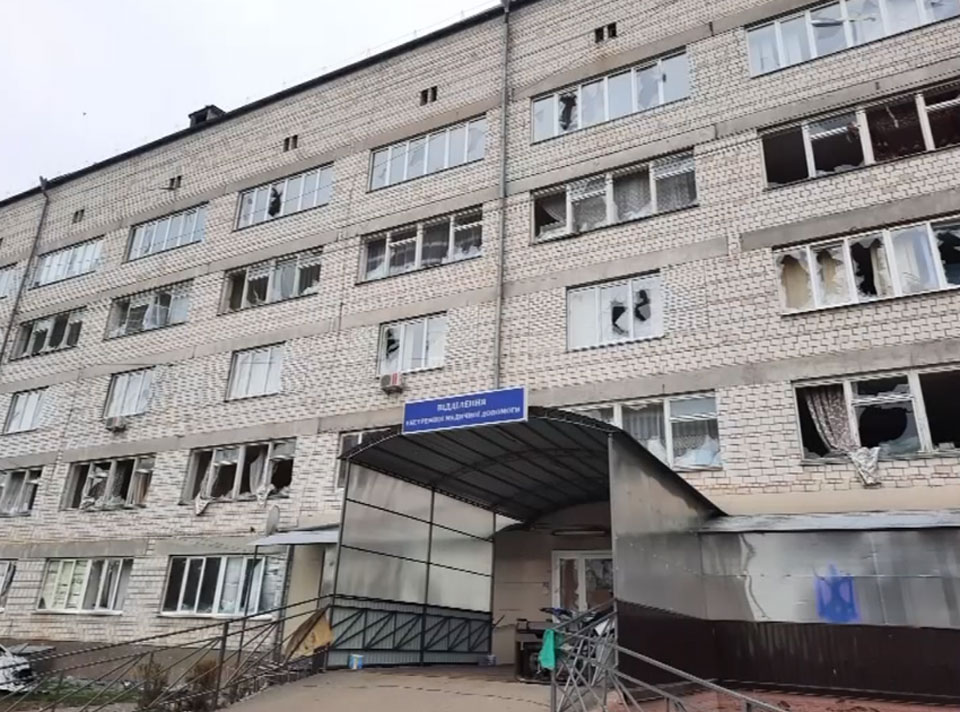
"Sometimes we have to refuse patients, whether they have a stay scheduled in advance or are brought here by ambulance," Yovenko says. "When all of our beds are occupied, we tell the emergency medical services that we don't have space."
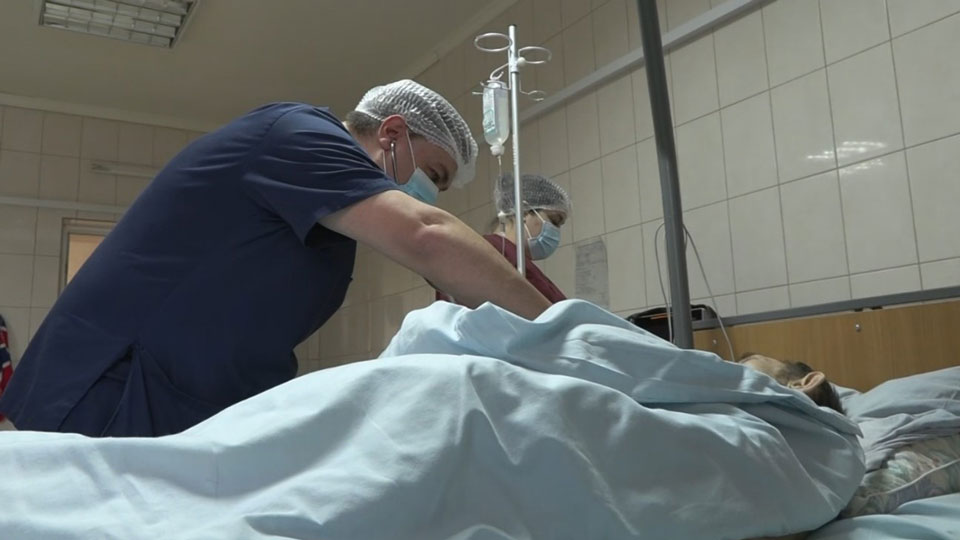
Attacks on healthcare
WHO has confirmed 857 such attacks since the war in Ukraine began on February 24 of last year, resulting in 101 deaths and 136 injuries.
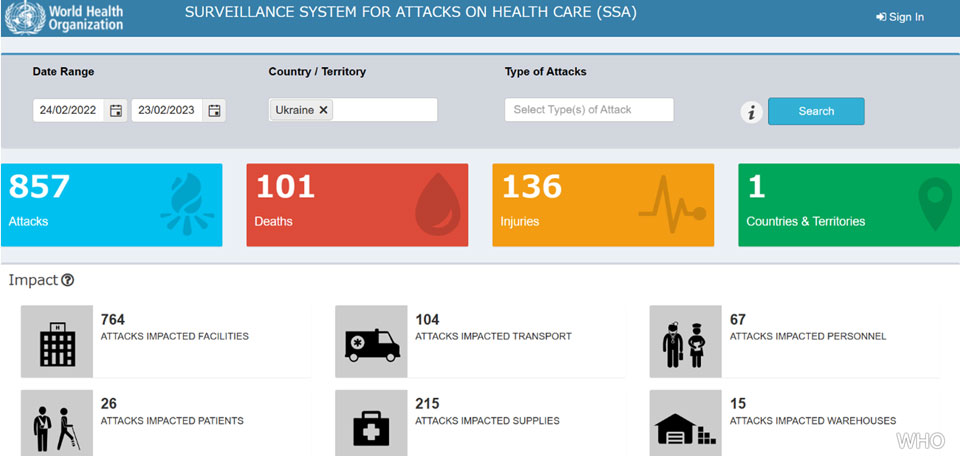
Dr. Jaruno Habicht, the WHO Representative to Ukraine, says the attacks have turned certain parts of Ukraine into medical deserts.
"If you look to the south and east parts of the country, people really struggle to have access to services," he says. "People don't have access to medicines. They have not seen their primary care doctors for weeks. The hospitals might not work."
He says this is putting a strain on the healthcare system that is starting to be felt in the rest of the country.
"Healthcare is becoming more difficult to afford," Habicht says. "Every third person in Ukraine, they don't have money to buy medicines. They have to budget for buying food. There are less jobs available. So healthcare is not affordable. People need to make choices to buy food or to buy medicine."

Habicht says the war is also changing the kind of care that is needed, with more people struggling with trauma and debilitating injury.
"We have approximately 10 million people who need support for mental health," he says. "This varies from self-help to stress management. But in addition to the mental health, we have also need for rehabilitation. There are so many who need support, those for the chronic diseases, those who have got stroke, heart attack, who need to learn again how to speak, how to walk again."
Habicht says the Makariv Central District Hospital and other facilities have demonstrated admirable resilience by resuming operations so quickly, but the fact they had to do so is deeply regrettable. He says it is incumbent on the world to remind Russia that such attacks are unforgivable, even in the context of war.


